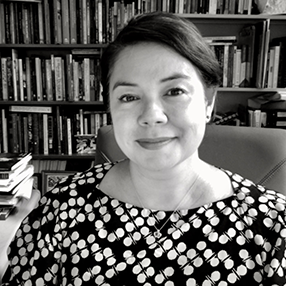We Live We Live
For Palestinian poet Reefat Alareer, with lines from his poems
We live.
We live.
We do.
——Refaat Alareer
You were killed today December 7th
my birthday It was today son of Shujaiya
in an Israel airstrike you were killed
visiting your brother’s home in Gaza City
Today, the anniversary of when my grandfather
only 12 years old climbed onto the roof
of his dormitory to watch the bombs
fall on the American naval base built over Puʻuloa
Your brother your sister and four of her
children were killed, too You were
just a few years younger than me
This morning after Israel’s birds of death
screeched down toward you my children woke up
on their own in Honolulu though it was still dark
their breath like soil their voices like soil
their kisses like soil blinking when touched by rain
And my youngest rubbing her eyes asked if
it was my birthday— And am I now 47?—
before singing in our ancestors’ language
we are learning to speak together after
the wreckage of English and Americans
And my oldest who is learning to speak
in speech therapy giggled in her grogginess
then sang her own song too
And what did I do to deserve such tenderness
this early morning? Or to live this long
having heard bombs and guns fired only
from a distance? Having stood safely
scared as a child and angry as an adult
at the sound of our lands and waters— Kahoʻolawe
Pōhakuloa Mākua Wahiawa battered
bruised burned poisoned in live fire practice?
By bombs that may have fallen on you or close
to you on those you loved full-hearted recklessly
those you learned to cling to even harder bombs
that may have hurt or killed children like mine who
could still sing? And you what did you do
to deserve your shorter poet’s life except
tell the truth and sow the seeds of songs
in your students except grow your love for them
for your people for your land and country
for the promise within the wreckage
that is this English echoing
all the way here to Honolulu where I resisted
opening my TikTok feed to savor my children’s sleepy
sweetness a little longer before facing
that birthdays are death days too?
That each day bombs and schools
hospitals and houses fall each day children
are pulled from rubble children are pulled away
crying from rubble that buried their mothers
that they feel alone that their hurt seeps
down into the dirt as they look heaven in the eye
somewhere in Gaza? That they have written
their names and their parents’ names on their limbs
so their bodies or maybe just these parts
if that is all that’s left can be known
to anyone who finds them?
That if they if you must die
so easily uprooted from the earth so harshly unsung
let it be a tale and why not write poems to birth
the strongest words of love like rocks?
like seeds? like songs? like names?
And why not hold those rocks in your hands?
Your arms? Pull them to your chest like children
lighting the darkest of birthday mornings?
Why not feel their full weight and cling
even harder to live to live dear poet
of Shujaiya of Gaza of Palestine
just before they just before you
take flight?
Copyright © 2024 by Brandy Nālani McDougall. Originally published in Poem-a-Day on May 15, 2024, by the Academy of American Poets.
“‘We Live We Live’ was written for the poet Refaat Alareer while I was working through so much grief and trauma from my personal life and tracking and witnessing the genocide of Palestinian families and communities. I learned on my forty-seventh birthday that Alareer, along with several of his family members, had been killed by an Israeli airstrike. I was still going through a very difficult divorce, being a single parent who was caring for two children, and trying to balance that with the work I was doing as an ʻŌiwi poet, scholar, and teacher. I was also still grieving Lahaina and the Lahaina people after the wildfires. To say that my heart was broken would barely scratch the surface of my despair. And then, in December, I got the news that Alareer, who had also been in his forties, who had also believed in the promise and hope of poetry, who wrote of love and community in the face of ongoing Israeli settler colonialism and genocide, and who taught so many students about the power and beauty and hope within words, had died. I had been struggling to write, and Alareer’s words and spirit helped. His poetry brought so much hope to me when I most needed it. This poem comes from so much gratitude for that generosity of hope.”
—Brandy Nālani McDougall

